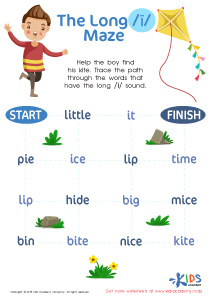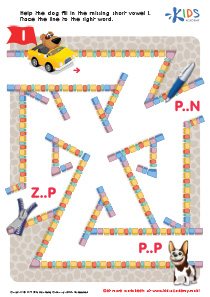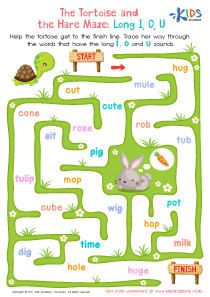Vowel Recognition Extra Challenge Missing Vowels Worksheets for Ages 5-7
4 filtered results
-
From - To
Discover our engaging "Vowel Recognition Extra Challenge Missing Vowels Worksheets" designed for children aged 5-7. These worksheets provide an exciting way for young learners to reinforce their understanding of vowels by identifying missing letters in words. Perfectly crafted to capture the attention of early readers, these activities promote critical thinking and improve literacy skills in a fun and interactive manner. Each worksheet encourages creativity while challenging students to decipher words through visual clues. Foster a love for reading and strengthen fundamental language skills with our carefully curated vowel recognition exercises, starting educational journeys on the right note!
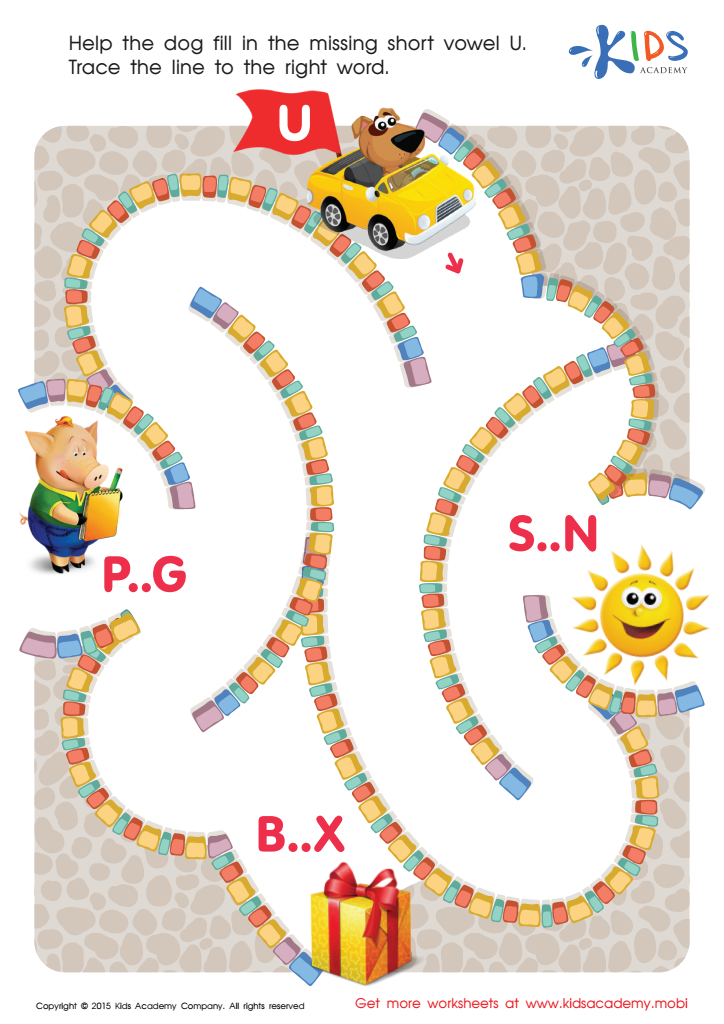

Short Vowel Sound U Worksheet
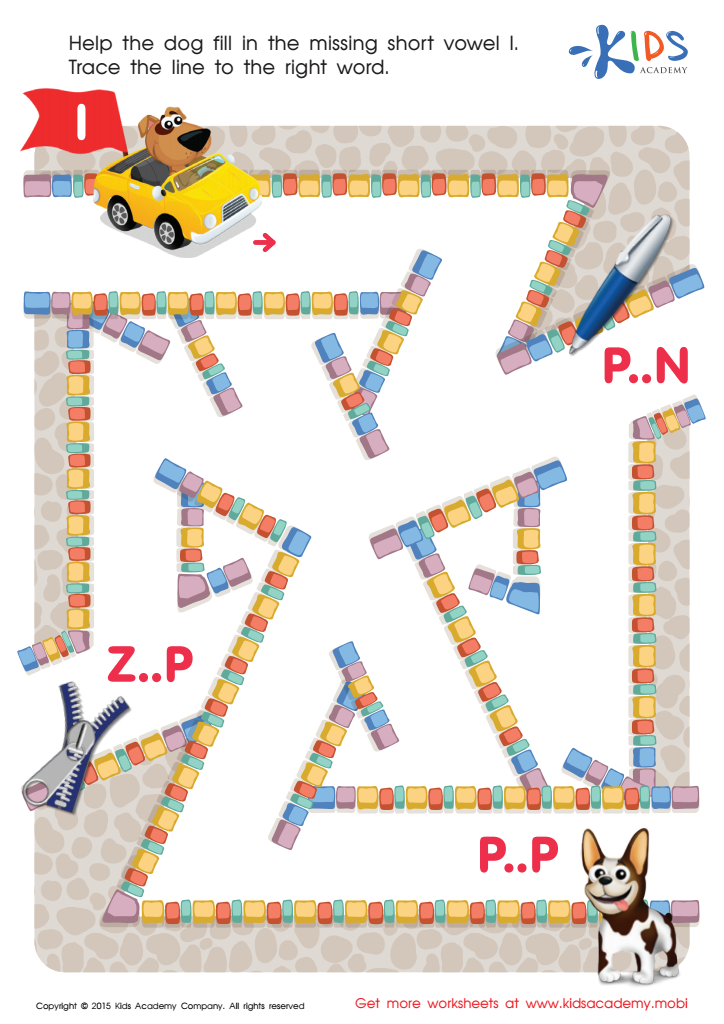

Short Vowel Sound I Worksheet
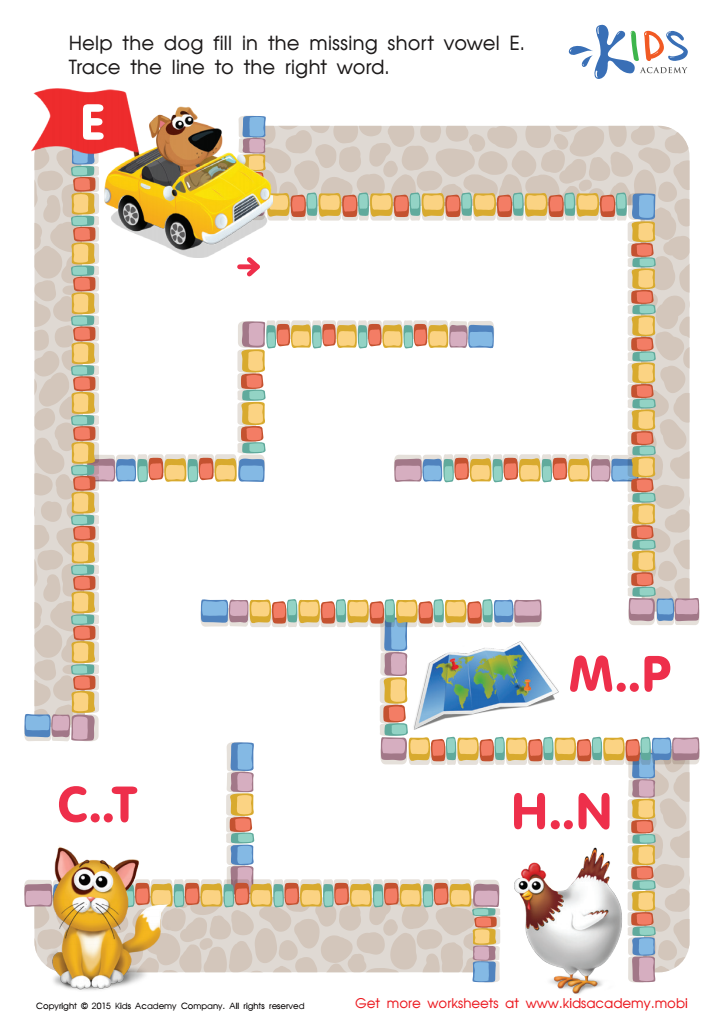

Short Vowel Sound E Worksheet
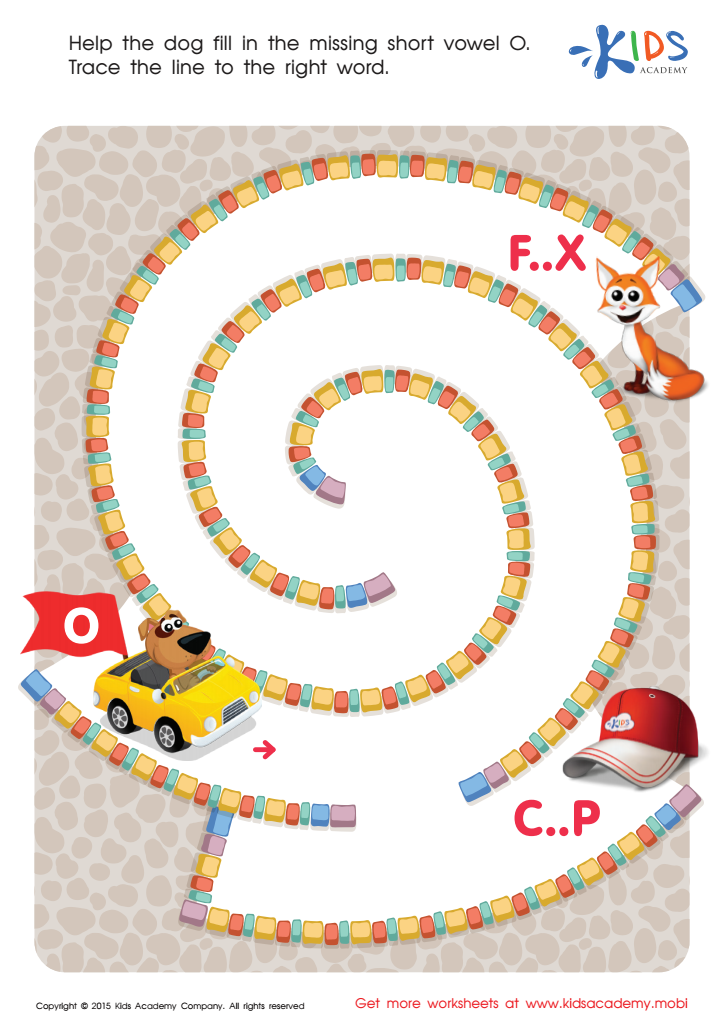

Short Vowel Sound O Worksheet
Vowel recognition is a fundamental skill in early literacy development for children aged 5-7. Understanding vowels is crucial for reading, writing, and overall language comprehension. The activity "Extra Challenge Missing Vowels" enhances vowel recognition by encouraging children to identify and fill in missing vowels in words, thereby reinforcing their understanding of how vowels function within language.
Parents and teachers should care about this activity for several reasons. Firstly, it promotes phonemic awareness, helping children to hear and manipulate sounds, which is essential for reading success. A strong grasp of vowels aids in decoding unfamiliar words, fostering greater confidence and fluency in readers.
Additionally, missing vowel exercises encourage critical thinking and problem-solving as children must engage in identifying what sounds fit best in a given context. This not only enhances their vocabulary but also enables them to grasp the rules and nuances of language structure.
Moreover, such activities can be easily integrated into daily routines or classroom settings, making learning fun and interactive. By supporting vowel recognition through this extra challenge, parents and teachers empower children to become more proficient readers and writers, laying a strong foundation for their future academic success.
 Assign to My Students
Assign to My Students






